Reaching Across the Growing Divide
By Wayne Jacobsen in a continuing series on The Phenomenon of the Dones.
According to the latest statistics thirty-one million passionate followers of Jesus regularly attend a Sunday gathering, many of those believing local congregations are the only place a true believer can engage the church of Jesus Christ today. And we have thirty-one million passionate followers of Jesus who no longer belong to a recognized congregation, many of them believing that corporations are a poor reflection of the church Jesus came to build.
So, who is right?
Neither.
And the fact that they both think they are and look down on the others tears the very fabric on which the church of Jesus Christ is sewn together. Nothing in Scripture, including Hebrews 10:25, obligates us to arrange ourselves in institutional settings, and nothing in Scripture says that God can’t be among those who do, to share his glory and invite them into his reality. So whether you “go to church” or whether your friend doesn’t is not important to God and the sooner it no longer matters to you, the freer you’ll be able to love whomever God wants you to love and walk with.
How we define the church is not of first importance to Jesus, but whether we are engaged with him and his work in the world. Arguing over church issues is like two teams showing up in the aftermath of a landslide to rescue those who re trapped and instead of jumping to the task at hand they begin to argue over who has the better brand of equipment.
Senseless isn’t it?
Paul said, “the only thing that counts is faith expressing itself in love.” (Galatians 5:6) The Galatians fought over circumcision, we do it over Sunday attendance. In the end neither matter. What does, is a growing trust in our Father expressed by the love we share for others. Participating in a local congregation does not save you, and not participating in one does not damn you, even if others claim so. There are lots of ways to get quality teaching, find meaningful fellowship and participate in the kingdom coming in the world and doing it through a local congregation is only one of those. If you find it helpful and meaningful to your faith, be there, and if not, look for other ways to connect with people more relationally.
But now more than ever we need to reach across whatever we think divides us and do the one thing that Jesus asked us to do as his followers: Love one another as he loves us and that includes people with whom you have differences. In fact loving others has mostly to do with our differences it’s easy to love people who think like we do. We fall into the same trap Jesus’ disciples did when they saw others doing miracles that weren’t part of their discipleship group. Jesus warned them to have a more expansive view of the kingdom and a more generous view of people: “Whoever is not against us is for us.”
We’ve been divided long enough by brand names, rituals, doctrine, and denominational structures. Isn’t it time we found a different reality to recognize the church Jesus is building around us? Even if you attend a local congregation, you would miss a lot of what God is doing in the world if you think it the only expression of Christ’s church in your community or the world, or that they are the only people God wants you to know.
For the past twenty years as I’ve walked alongside people who’ve lost connection and hope in institutional Christianity. They haven’t, however, lost their faith in Jesus, their passion for real community with other disciples, or their desire to touch the world around them. They are discovering that church life doesn’t require an institutional component. During that time, I also kept up friendships with people who swear by the necessity of those local congregations. I have close relationships with people who are elders, pastors, and committed attenders, who have provided great encouragement and wisdom for my journey. I have been involved with a number of outreaches to the poor and marginalized in the communities in which I’ve lived, some sponsored by denominations and others by individuals with a passion to serve their community.
The body of Christ has become so much larger and far more diverse for me, filled with people who wouldn’t agree with everything I believe, but they do share a relationship with the same Father I know. What draws us together is not our theology about church but finding ourselves alongside each other in the river of the Father’s affection. In that connection the sheer silliness of whether or not someone attends a specific meeting regularly is seen for what it is. When we make doctrine or religious practice the basis of church life we only add to the division. Most of those differences are not based on the essentials of who Christ is anyway, but on our varying interpretations of obscure passages that become less important in the face of love.
All I need to have fellowship with you is have the slightest inkling that you are getting know the Father I know. I recognize that by the love he’s pouring into your heart both for him and for others, especially those who don’t see the world the way you do. Are you learning to be generous and kind, or becoming more judgmental, demanding that others agree with you? You can be one day old in this faith with all kinds of doctrinal suppositions askew, and no idea how to live in his reality and yet we can share life because that life is in him, not the correctness of our doctrine. In time he will bring you and me to what’s true. That’s why I don’t regard conformity a condition for fellowship or collaboration. All I need to see is a Father’s love growing in your life. I trust him to take care of the rest.
Sara and I have been reading a fascinating book called The Soul of Shame by Dr. Curt Thompson, MD, who uses brain science to show the devastating effects of shame in disconnects our brain functions internally as well as our relationships externally. Shame, whether in the form of self-pity or arrogance, shatters the creation and isolates us from others. “Shame has a way of translating different into better or worse. To the degree that shame has a foothold in my heart, I can unconsciously react to difference with judgment directed either at the other or myself.”
If love were the most important thing we would be able to walk together and put his love in the world without being threatened by people who live out their faith differently than we do. I’m not suggesting by that, that there isn’t right and wrong thinking about God, because there is. I’m just harkening back to Romans 14, where Paul invites us not to try to shape each other’s journey, but trust God’s Spirit to do that. “If there are corrections to be made or manners to be learned, God can handle that without your help.” (Romans 14:4, MSG) And the best environment for that to happen is where people are being loved and cared for, while they are being encouraged to get to know Jesus better.
A long time ago I gave up the need to classify someone by their denominational affiliation or lack of it, or even use it as a gauge of the depth of their spiritual passion. Love doesn’t require it and doing so only chokes the hope of relationship. Scripture does not empower any entity called “the church” to determine who is a part of God’s kingdom and who isn’t. We have too long worried about drawing the lines to determine who belongs to God and enforcing those lines with a vigor that snuffs out the smoldering wick, and snaps off the bruised reed.
Paul entrusted that work elsewhere. “God’s solid foundation stands firm, sealed with this inscription: The Lord knows those who are his,” (2 Timothy 2:19). If he knows we don’t have to. Jesus had already warned his apostles that if they tried to separate the wheat from the weeds they would destroy the wheat in the process.
What would happen if all we looked for in each other was a growing participation in the reality of his love and sharing it with others? Wouldn’t we find better connection with brothers and sisters around us regardless of what group they belong to or what doctrinal differences we had? Wouldn’t this be the fruit of the Spirit Jesus encouraged us to look for rather than some man’s wisdom, or some woman’s seeming miracle-working power?
If we’re going to be the people in whom Jesus’ prayer for “complete unity” is fulfilled, we’re going to have to put him and his love in the preeminent place and nothing else. We’re going to have to get over being threatened by people who see life differently and worry less about those who claim we can’t be followers of Christ because we don’t jump through whatever hoop they think is essemtial.
We respond to his Spirit as he knits the church together by pursuing those relationships he puts on our heart. For local church advocates, they would be blessed to reach beyond the borders of their own institution and connect with Christians in other institutions and share fellowship with those who don’t attend at all. For those who’ve stopped attending you’ll be blessed to have connections with those who still do, if they will allow it and not despise your journey.
Jesus’ family in your locale is so much bigger than the ways we’ve divided her up. How much more would we demonstrate the kingdom if we loved and cooperated beyond our different views of church or our doctrinal distinctions? Love can do that. Nothing else can.
Of course not everyone is going to see the church this way. Many will hold to their rituals, and doctrines as hills to die on, judging harshly those who do not to the same. But what we need an increasing number of Jesus followers learning to love generously, reaching across our imagined lines of demarcation and loving and serving alongside others Jesus has invited us to know.
If we let this relational reality that love allows define the church it will free us to love other followers of Christ with open hearts and hands. Recently I was invited to dialog with a group of pastors about my book, Finding Church and those who see church beyond the local congregation. At the very end one pastor spoke up, “I know a ‘done’ who used to be a close friend and elder but left my congregation five years ago. How should I treat him?”
My heart melted at the question. I’ve been a pastor. I know how painful it is to have good friends leave the fellowship. Most don’t even mean it personally, but that doesn’t mean we don’t take it that way. It always felt like a personal rejection of me, my message, or at least the friendship we shared together. But this man wanted to reach beyond that pain and see if the friendship was still there.
I found myself responding, “If he cared about him them, why wouldn’t he be your friend now? I’d take him out for coffee and just reconnect, focusing the conversation on Jesus instead of church.” He did exactly that. By the time I’d driven the two hours it took me to get home, I had a voice mail from that pastor. He’d called his friend right after the meeting and since he was available then he drove straight to a coffee shop to meet him. They hadn’t seen each other in five years, but his voice cracked as he shared the amazing conversation they had. “I have my best friend back.”
Wouldn’t it be great if our friendships could grow regardless of what we might be doing differently on Sunday morning? More than nailing down the holes in someone else’s doctrine, or spending countless hours in religious activity, we would simply learn to live in the ever-growing reality of his love. If fellowship really spreads like this our tribal distinctions will become meaningless and Jesus’ prayer that all his followers will be one would be answered.
It may only take a phone call, but in such moments the kingdom of God grows in the world.
______________________________
This is part 14 in a series on The Phenomenon of the Dones by Wayne Jacobsen who is the author of Finding Church and host of a podcast at TheGodJourney.com. You can read the first half here and subsequent parts below:
- Part 8: Five Factors Contributing to the Decline in “Church Attendance”
- Part 9: An Invitation Not An Imposition
- Part 10: The Conversations that Matter Most
- Part 11: Monetizing Ministry
- Part 12: Handling the Truth
- Part 13: Do You Have Community?
If you’d like to subscribe to this blog and receive future posts by email you can sign up at the top of the right-hand column of our home page.





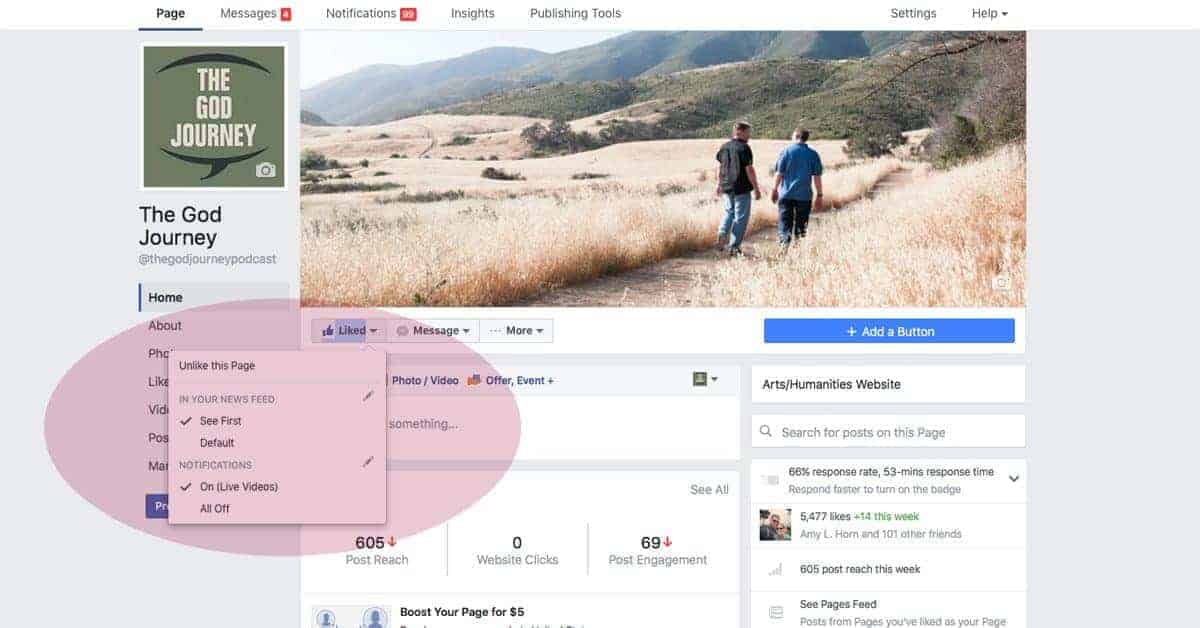

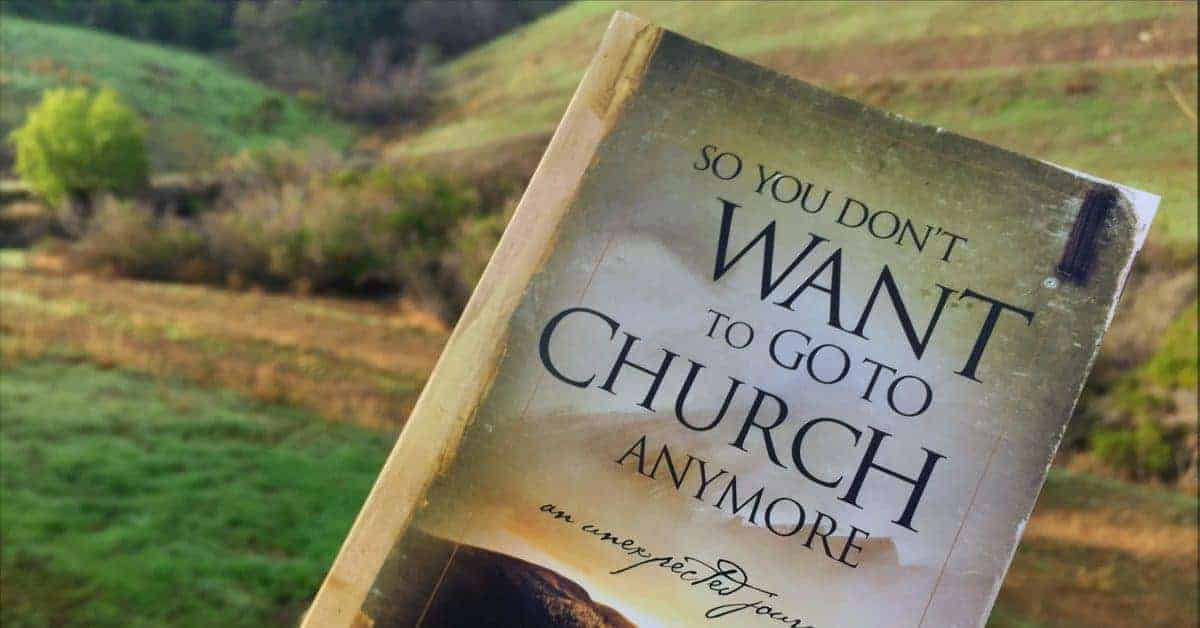



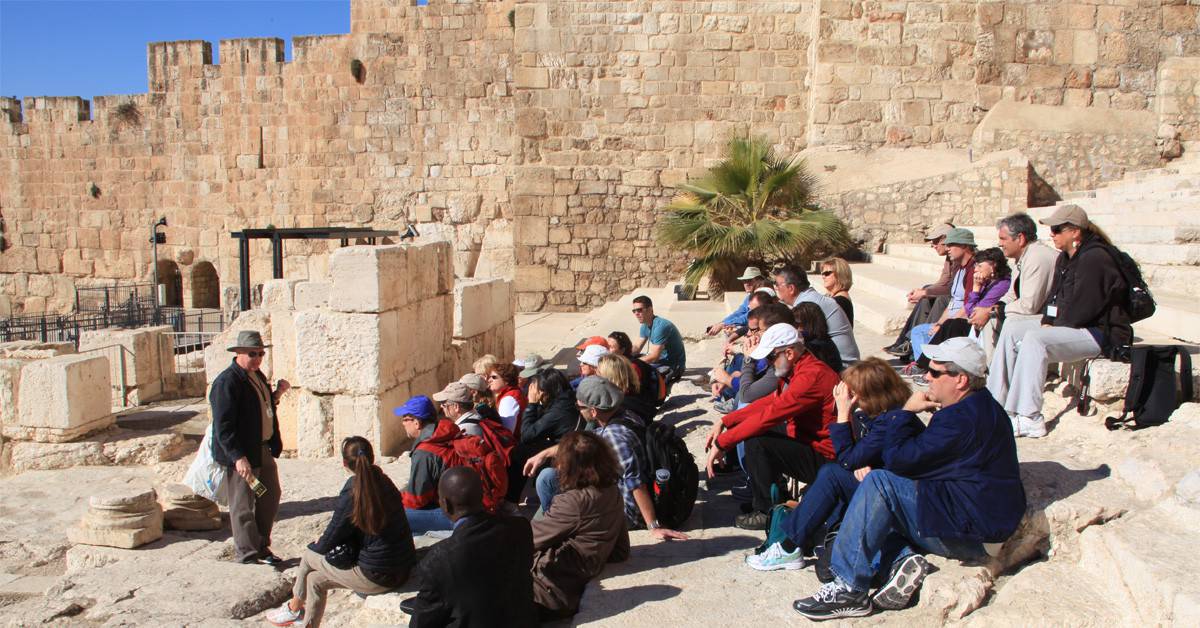
 The Israel Tour Company
The Israel Tour Company

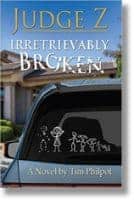
 The Poet’s Treasure
The Poet’s Treasure
 Panic to Peace: Living Free from the Grip of Fear
Panic to Peace: Living Free from the Grip of Fear

 My first trip to Israel in 1997 proved to have far more impact on me than I ever thought it could and the one we took two years ago brought some amazing people together and began friendships from around the world that continue to flourish. My time in Israel gave me a different dimension of understanding for God’s work of redemption. I was drawn closer to His heart. I had touched the earth where He had walked. I had been given a first-hand look at the sky, hills, valleys, and waters where He lived out His physical life. I had experienced His earthly home!
My first trip to Israel in 1997 proved to have far more impact on me than I ever thought it could and the one we took two years ago brought some amazing people together and began friendships from around the world that continue to flourish. My time in Israel gave me a different dimension of understanding for God’s work of redemption. I was drawn closer to His heart. I had touched the earth where He had walked. I had been given a first-hand look at the sky, hills, valleys, and waters where He lived out His physical life. I had experienced His earthly home!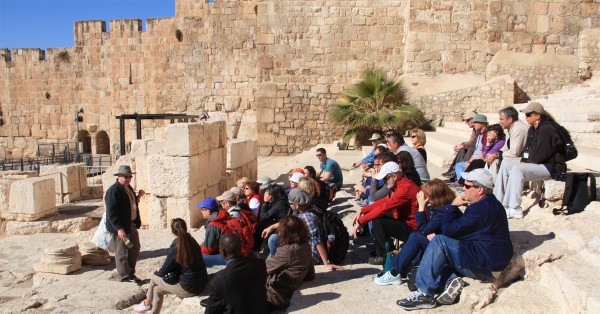 We’re making room for forty-five people to come with Brad and me. As we journey, we’ll walk through the Scripture story. I’ll be sharing some thoughts at key sites designed to stimulate personal reflection. And as we go along, we will enjoy a joint conversation about how God is revealing Himself in us.
We’re making room for forty-five people to come with Brad and me. As we journey, we’ll walk through the Scripture story. I’ll be sharing some thoughts at key sites designed to stimulate personal reflection. And as we go along, we will enjoy a joint conversation about how God is revealing Himself in us.